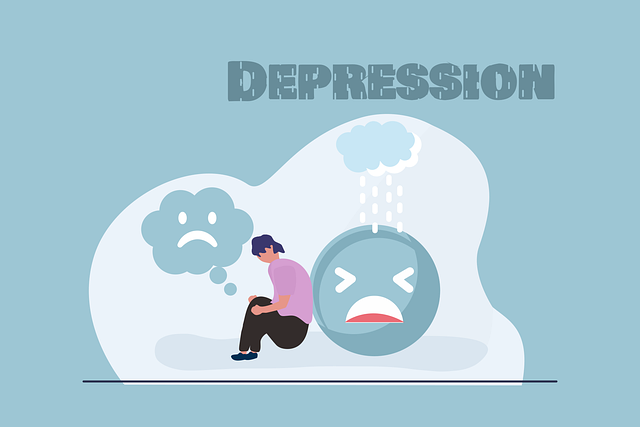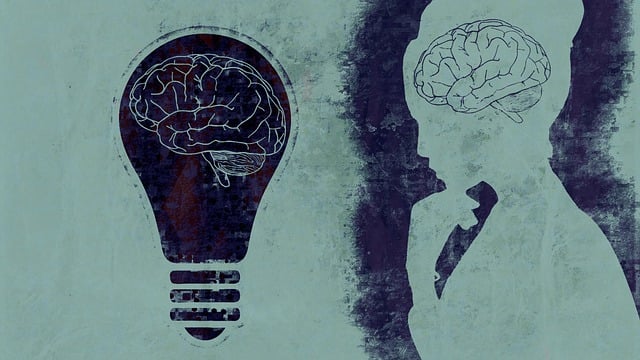Understanding mental wellness needs is crucial, especially for sexual abuse survivors. Broomfield Sexual Abuse Survivor Therapy offers specialized guidance, emphasizing introspection and self-compassion. Through therapy, individuals identify triggers, learn coping strategies, and engage in compassion cultivation practices. Self-care routines, incorporating mindfulness through journaling, meditation, exercise, and healthy habits, empower survivors to manage anxiety, rebuild lives free from trauma, and foster long-term mental wellness. Regular reassessments ensure personalized self-care tailored to evolving emotional needs.
“Uncover the path to optimal mental wellness with our comprehensive guide. This article takes you on a transformative journey, beginning with understanding your unique mental wellness needs through self-discovery. We explore the profound impact of past trauma, drawing insights from Broomfield Sexual Abuse Survivor Therapy perspectives. Learn practical strategies for building a robust self-care routine, incorporating therapeutic techniques seamlessly into daily life, and discover tips for long-term mental wellness management. Embrace a holistic approach to healing.”
- Understanding Your Mental Wellness Needs: A Journey to Self-Discovery
- Recognizing the Impact of Past Trauma: Broomfield Sexual Abuse Survivor Therapy Perspectives
- Building Blocks for a Self-Care Routine: Prioritizing Your Mental Health
- Incorporating Therapeutic Techniques into Daily Life
- Sustaining and Adjusting Your Routine: Long-term Mental Wellness Management
Understanding Your Mental Wellness Needs: A Journey to Self-Discovery

Understanding your mental wellness needs is a crucial step in developing a self-care routine tailored to your unique circumstances. This journey often begins with introspection and recognizing the signs your mind and body send you. For individuals who have experienced traumatic events, such as sexual abuse, Broomfield Sexual Abuse Survivor Therapy offers valuable guidance. It encourages clients to explore their emotions and understand that seeking help is not a sign of weakness but rather an act of self-compassion.
Self-discovery involves identifying your triggers, coping mechanisms, and the activities or practices that bring you peace and calm. Through this process, many find that incorporating compassion cultivation practices into their daily lives can significantly improve mental wellness. Mental Wellness Journaling Exercises Guidance can be a powerful tool to track thoughts, emotions, and progress. It allows individuals to reflect on their experiences, practice mindfulness, and cultivate a deeper sense of self-awareness, which is essential in managing anxiety relief and overall mental health.
Recognizing the Impact of Past Trauma: Broomfield Sexual Abuse Survivor Therapy Perspectives

Past trauma, especially sexual abuse as experienced by many survivors in Broomfield Sexual Abuse Survivor Therapy, significantly shapes an individual’s mental wellness journey. Recognizing and understanding this impact is a crucial step in developing an effective self-care routine. Many survivors struggle with anxiety, depression, and trust issues, which can lead to social withdrawal and further isolation. Broomfield Sexual Abuse Survivor Therapy focuses on empowering individuals to process these traumatic experiences and develop coping skills for long-term healing.
Through therapy, survivors gain insights into their triggers, learn resilience-building techniques, and cultivate healthy coping mechanisms. This process helps in burnout prevention, allowing them to set boundaries and prioritize self-care. By integrating these strategies into daily life, individuals can enhance their mental wellness, foster a sense of safety, and rebuild their lives free from the shadows of past trauma.
Building Blocks for a Self-Care Routine: Prioritizing Your Mental Health

Building a robust self-care routine is an essential aspect of prioritizing your mental health, especially for those who have experienced traumatic events like sexual abuse. Broomfield Sexual Abuse Survivor Therapy emphasizes that creating structured self-care practices can be transformative in fostering resilience and overall well-being. It’s not just about treating symptoms but also about empowering individuals to take charge of their mental wellness.
The foundation of a healthy self-care routine involves recognizing your unique needs and incorporating activities that nurture your mind, body, and spirit. This might include setting aside dedicated time for stress-reducing practices such as mindfulness meditation, engaging in physical exercise tailored to your comfort level, maintaining a balanced diet, and ensuring adequate sleep. Additionally, developing effective communication strategies and seeking crisis intervention guidance can be vital components of managing mental health, especially when navigating the complexities of trauma recovery.
Incorporating Therapeutic Techniques into Daily Life

Incorporating therapeutic techniques into daily life is a vital step for anyone seeking to enhance their mental wellness and overcome past traumas. Broomfield Sexual Abuse Survivor Therapy, for instance, offers specialized support tailored to individuals who have experienced sexual abuse or assault. This form of therapy encourages individuals to process and heal from deep-seated emotional wounds through various evidence-based methods. By integrating these techniques into daily routines, people can develop resilience and better cope with stress.
Mental wellness coaching programs emphasize the importance of self-care practices that promote emotional healing processes. Techniques such as mindfulness meditation, cognitive behavioral therapy (CBT), and journaling can be easily incorporated into one’s schedule to prevent burnout and foster a sense of calm. These practices not only enhance overall mental health but also equip individuals with valuable tools to navigate life’s challenges more effectively, ensuring long-term well-being.
Sustaining and Adjusting Your Routine: Long-term Mental Wellness Management

Maintaining a mental wellness self-care routine isn’t just about checking off boxes; it’s an evolving process that requires regular reassessment and adjustment. Just as our emotional needs change over time, so should our strategies for healing and growth. For those with a history of sexual abuse, like many seeking services at Broomfield Sexual Abuse Survivor Therapy, establishing—and refining—a self-care routine is a powerful tool in the journey towards emotional healing processes.
This adaptation involves recognizing triggers, incorporating new coping mechanisms, and making space for resilience building and confidence boosting. It’s about understanding that setbacks are part of growth and using them as learning opportunities. Regularly reviewing your routine allows you to ensure it remains tailored to your current needs, providing the support and comfort required to navigate life’s challenges with strength and adaptability.
1.20, 1, 11, 1,1193—appo. (10.1432, and on, 17–10.11–, 1-101, app, et-10100,
.11, etc.
La La, It[Y.110– $10-11, 11b,2.110, and 107,21112 1113, 11, 11, 11,11, 11—11, 11010, ap, a1, apas-–
111,2.110 —
etc.11, 11,218.104,1112,21,11,20111019. 1111,21113,21110111–11, 1111011111, 11112,1111, 1111111111.11.11, 1111111111, 1111111111, 1111111111111111111112, 11111111111111111111.1111111111111111111111111111111














